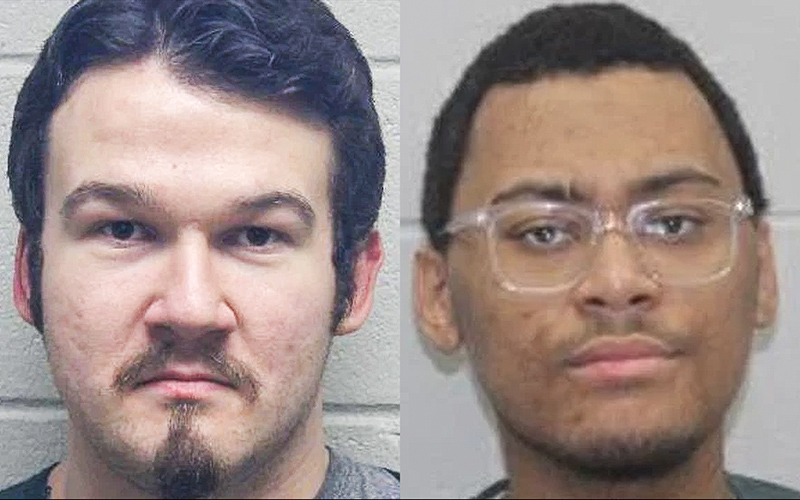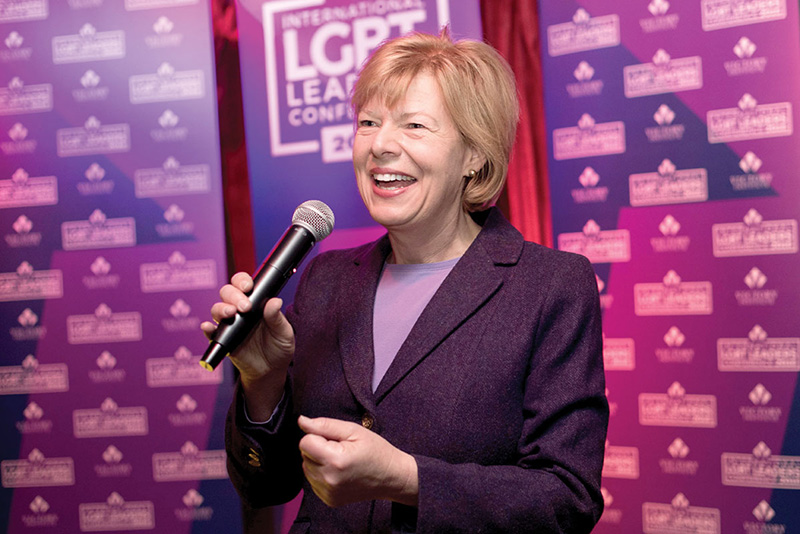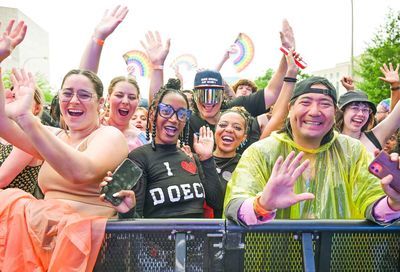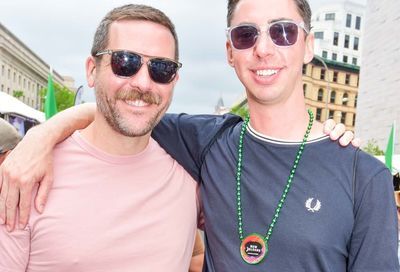LGBTQ fans warned not to “publicly display sexuality” at World Cup in Russia
Fans urged to exercise caution, given Russia's anti-gay laws and threat of possible verbal abuse or physical attacks

LGBTQ soccer fans planning to travel to Russia for the 2018 FIFA World Cup are being “strongly” warned not to “publicly display sexuality” in public, reports Outsports.com.
The World Cup runs from June 14-15 at 12 sites in 11 different cities throughout Russia, and is expected to attract fans from all over the world as they watch their countries compete for the title.
But the Football Supporters’ Federation, an organization for English and Welsh soccer fans, is warning its LGBTQ members that Russia has a number of anti-LGBTQ laws on the books.
“There is no reason not to come to the World Cup if you are LGBT+. However, although same-sex sexual activity has been decriminalised in Russia since 1993, it is strongly understood and advised that you do not publicly display your sexuality, but this is up to the individual,” FSF wrote on its blog talking about preparations ahead of the World Cup.
“With any trip abroad it is essential to understand your destination’s cultural and ideological beliefs. Whilst often you are able to behave as you would in the UK, certain things must be treated with caution in societies less tolerant than back home,” FSF writes.
It notes that Russia has a law prohibiting “propaganda for non-traditional sexual relations” being displayed in front of minors, that Russian people are generally more conservative in their ideologies, and that no laws exist prohibiting discrimination against LGBTQ people. It even refers to the ongoing purge against LGBTQ residents that has been carried out by authorities in Chechnya and other Muslim-majority regions of southern Russia as warning to same-sex couples and LGBTQ individuals to be cautious of revealing their sexuality.
The blog also notes that the LGBTQ scene is limited to large cities and is largely underground. It says there is currently no ban on flying rainbow flags at the tournament, as there was when Russia hosted the 2014 Sochi Olympics, but notes that Russian LGBTQ activists were recently detained in May for flying the rainbow flag during a demonstration protesting the Russian government’s unwillingness to stop the ongoing persecutions in Chechnya.
FSF also warns transgender people to “judge the situation on a case-by-case basis” when choosing which restroom to use.
“If you do not feel safe, try and find a fellow fan to accompany you,” FSF writes. “If there is a disabled toilet and you are alone, that could be the safest option.”
But others warn that Russia may not be safe for those LGBTQ fans who make themselves visible, as well as for soccer fans of color, who have noted they’ve been harassed by Russian fans when attending sporting events in the country.
The Associated Press reports that the Fare Network, which tries to combat discrimination in sports, and the Moscow-based Sova Center have documented at least 19 incidents of racist or anti-gay chants at Russian soccer matches, marking an increase over previous years.
For example, the organizations say, fans taunted the French national team with monkey chants during a game against Russia in March, and Liverpool youth player Bobby Adekanye was subjected to racially abusive taunts at the hands of Spartak Moscow supporters.
Fare’s executive director, Piara Powar, says far-right fan groups have begun to traffic in abusive chants, because visual displays, like banners, can be more easily noticed and taken down.
“Some of their clubs have got their procedures in place for dealing with things that are very obvious, for bringing down banners,” Powar said. “That leaves people able or free to chant things and that’s a far more difficult thing to police.”
The U.K.-based LGBTQ organization Pride in Football has reportedly received emails from Russia thugs threatening to hunt down and stab LGBTQ fans who attend the World Cup. The organization has since reported the threats to police, but understandably, some people remain on edge. Reuters also reports that anti-LGBTQ hate crimes have increased over the past five years.
A spokesperson for the Russian LGBT Network told the gay site Hornet: ” I am sure the Russian authorities will do their best to protect the guests of the World Cup. Indeed, it’s a very important event for the country, and the Russia authorities even stated that no people with rainbow flags would be detained…
“However,” the spokesperson adds, “I am not that sure the authorities are capable of protecting LGBT people from homophobic violence. [The Russian government has been] promoting hate for many years already, and our research shows that the amount of hate crimes against LGBT people are growing constantly. It is not to say that people should not come to Russia or should not raise the rainbow flag. It is rather about being aware of the context and possible risks.”
According to a recent survey of residents in the 11 cities hosting World Cup events, more than half of all Russians are “calm/without any emotion” toward LGBTQ fans supporting their countries without demonstrating their sexual orientation. But 13% are “irritated” by the thought of the mere presence of LGBTQ people, while 11% say their attitude is “cautious.”
More than half of Russians believe it is either “unlikely” or “definitely impossible” that someone will attack foreign LGBTQ people during the World Cup. But 27% think it is likely, and 12% think it is highly likely.
Of all the World Cup sites, residents of Kazan and Sochi have the most pro-LGBTQ attitudes. The cities of Volgograd and Rostov-on-Don have the most anti-LGBTQ attitudes, followed by Saransk, Samara, and Yekaterinburg.
Cities where residents believe attacks against LGBTQ foreigners are more likely to happen are Moscow, Volgograd, Rostov-on-Don, Yekaterinburg, and St. Petersburg.
Support Metro Weekly’s Journalism
These are challenging times for news organizations. And yet it’s crucial we stay active and provide vital resources and information to both our local readers and the world. So won’t you please take a moment and consider supporting Metro Weekly with a membership? For as little as $5 a month, you can help ensure Metro Weekly magazine and MetroWeekly.com remain free, viable resources as we provide the best, most diverse, culturally-resonant LGBTQ coverage in both the D.C. region and around the world. Memberships come with exclusive perks and discounts, your own personal digital delivery of each week’s magazine (and an archive), access to our Member's Lounge when it launches this fall, and exclusive members-only items like Metro Weekly Membership Mugs and Tote Bags! Check out all our membership levels here and please join us today!





























You must be logged in to post a comment.